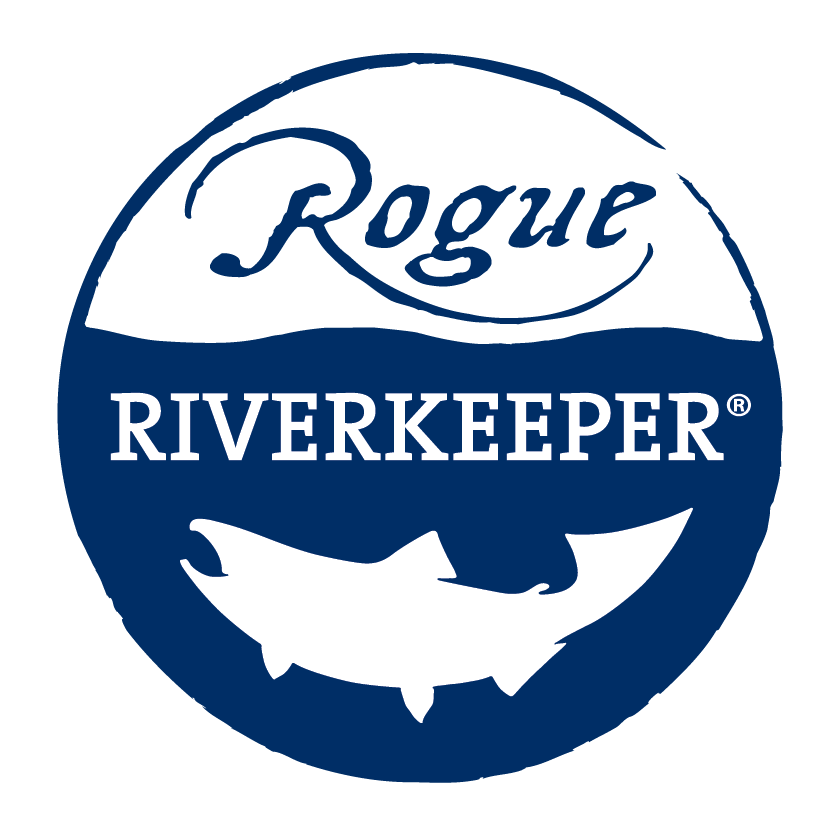Unprecedented Number of Comments Submitted to Oregon Department of State Lands in Opposition to the Jordan Cove LNG Export Terminal and Pacific Connector Pipeline
FOR IMMEDIATE RELEASE: Monday, February 4, 2019
CONTACT:
Allie Rosenbluth, allie@rogueclimate.org, 703-298-3639
Stacey Detwiler, stacey@rogueriverkeeper.org, 541-488-9831
Damon Motz-Storey, damon@oregonpsr.org, 303-913-5634
[OREGON] -- On Sunday, February 3rd, a state public comment period closed after over 35,000 total comments were received by the Oregon Department of State Lands in opposition to a “removal-fill” permit for Pembina’s proposed Jordan Cove LNG export terminal and Pacific Connector fracked gas pipeline. The comments were submitted by impacted landowners, anglers, small business owners, tribal members, health professionals, and many more Oregonians concerned about the impacts the fossil fuel project would have on nearly 500 waterways.
The 60-day comment period ends only a few weeks after over 3,000 people, mostly rural Southern Oregon residents, spoke out against the project at overflowing State Lands hearings in Klamath County, Jackson County, Douglas County, Coos County, and Salem. Over 70% of attendees at those hearings demanded that the permit be denied.
“As a fishing guide, I know how important clean rivers are for Southern Oregon’s economy,” said Stuart Warren, owner and guide at Stuart Warren Fly Fishing. “The Oregon Department of State Lands needs to protect our existing jobs in fishing and recreation by denying this permit for Jordan Cove.”
"The project will unreasonably harm our fisheries, particularly the Dungeness crab fishery," said Coos County resident Mike Graybill. "LNG vessel traffic will limit access to crab fishing areas in Coos Bay."
“Dredging out Coos Bay and blasting, damming, and digging below the waters and wetlands that flow into the Klamath, Rogue, Umpqua, Coquille, and Coos Rivers threatens clean water and the health of our communities,” said Stacey Detwiler of Rogue Riverkeeper. “We urge State Lands to stand up for Oregonians and clean water by denying this permit.”
Prior to the State Lands’ comment period, Pembina, a Canadian corporation, spent millions of dollars on glossy mailers and radio and TV ads to Southern Oregonians and new office spaces in Klamath Falls and Coos Bay. Locals were only galvanized by the presence of the Canadian fossil fuel corporation to take action and turn out tens of thousands of comments over a period of 60 days that spanned the holidays. Particularly notable comments were submitted by the Klamath Tribes, Jackson County Commissioners, Southern Oregon Land Conservancy, Oregon Nurses Association, C2 Cattle Ranch, Coos Bay Surf Riders, and League of Women Voters of all four impacted counties and Oregon.
“In 2016, this same project was denied by the Federal Energy Regulatory Commission after it was clear the impacts of the pipeline and export terminal to communities would far outweigh any benefits,” said Hannah Sohl, Executive Director of Medford-based community organization Rogue Climate. “Now, this Canadian fossil fuel corporation is trying to buy our support with marketing campaigns and fancy new offices. Southern Oregonians know that nothing’s changed and that this project still threatens our water, climate, economy, and safety. That’s why over 3,000 people voiced their opposition to Jordan Cove LNG at Department of State Lands hearings this January and more than 10 times that submitted comments.”
“This project would cross 485 waterways and risk the drinking water of over 156,000 Oregonians,” said Dr. Melanie Plaut of Oregon Physicians for Social Responsibility. “State Lands must deny this permit because the pipeline and export terminal is not the best use of our waterways. Instead of a massive fracked gas pipeline and export terminal that would degrade the health of our climate, Oregonians need a swift, just transition to clean energy and greater energy efficiency.”
Pembina must receive State Lands approval to dredge Jordan Cove in Coos Bay for the massive proposed liquefaction and LNG shipping terminal as well as the river crossings of nearly 500 Oregon waterways. Though the proposal must clear other state and federal permitting processes, State Lands can put an end to the proposal if it determines the 229-mile pipeline and export terminal would degrade water quality for fishing, recreation, and transportation. State Lands is scheduled to make a decision in early March, but agency staff have said that the unexpectedly high volume of comments may cause them to seek an extension to that deadline.
###

